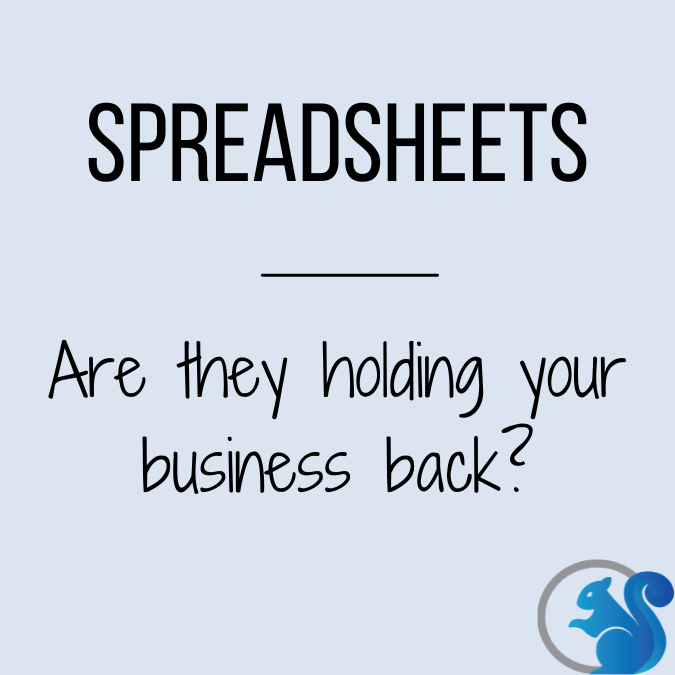Are spreadsheets holding your business back?
Ah, the trusty spreadsheet. I can't imagine many people around today who have never used a spreadsheet in some form or another.
They have been an essential staple in virtually every office and business over the past couple of decades, and for good reason. They provide a powerful, simple and effective means to organise and analyse data, and they can be used for a wide range of data-related tasks, from tracking expenses to creating budgets and forecasts.
I think one of the main reasons so many of us make use of them is their flexibility. They can be customized to fit the needs of virtually any business, and they can be easily updated and modified as those needs change. They also make it easy to share data with others, whether it's within your team or with external suppliers and partners.
For a new business that’s starting out, it’s a no-brainer to utilise spreadsheets to manage business data. However, as powerful as they are, spreadsheets have their limitations and weaknesses, and as a business grows, those limitations become more and more pronounced.
But what are those limitations?...
The first, I'd argue, is the amount of data a spreadsheet can handle before it becomes unwieldy. When a business starts out, you may only be using the equivalent of a couple of hundred rows to manage your data, which is fine. But as a business grows, it has to deal with more data, and you are now filling up the equivalent of thousands, or maybe even tens of thousands of rows in a spreadsheet. With all data, you suddenly find the information you need awkward to find and manipulate.
Another is how easy it is to slip and make a mistake with a spreadsheet, and to do so without noticing that mistake. Have you ever clicked on the wrong cell and accidentally overwrote something you need?...hopefully you caught your mistake and were able to press the undo button.
Spreadsheets don't always provide the best visualisation of data making it difficult to identify patterns and trends, which can be crucial for making informed business decisions.
Spreadsheets don’t have particularly good security features. Typically if you give someone access to a spreadsheet, they can see everything in it. One slip-up, such as selecting the wrong file to attach to an email, could result in critical business data ending up in the public domain. The potential fall-out from such a blunder could include eye-watering GDPR-related fines and the bad press, which could torpedo a business overnight
Finally, there is how time-consuming spreadsheets can become to update and maintain, especially if you manually enter data from multiple sources.
Most businesses, sooner or later, find those limitations to start holding their business back, and to move forward, a business owner must look at the next level of software. Most go out to the off-the-shelf market and pick one of the many ‘one-size-fits-all’ packages, but in doing, they often have to sacrifice the critical advantage you get with spreadsheets, the flexibility to organise the data in the way that works best for your business.
But there is a way to take your business to the next level without having to lose flexibility, and that is by having custom software built to fit your business.
If you think your use of spreadsheets is starting to hold your business back, get in touch and let us help you take your business to the next level.

